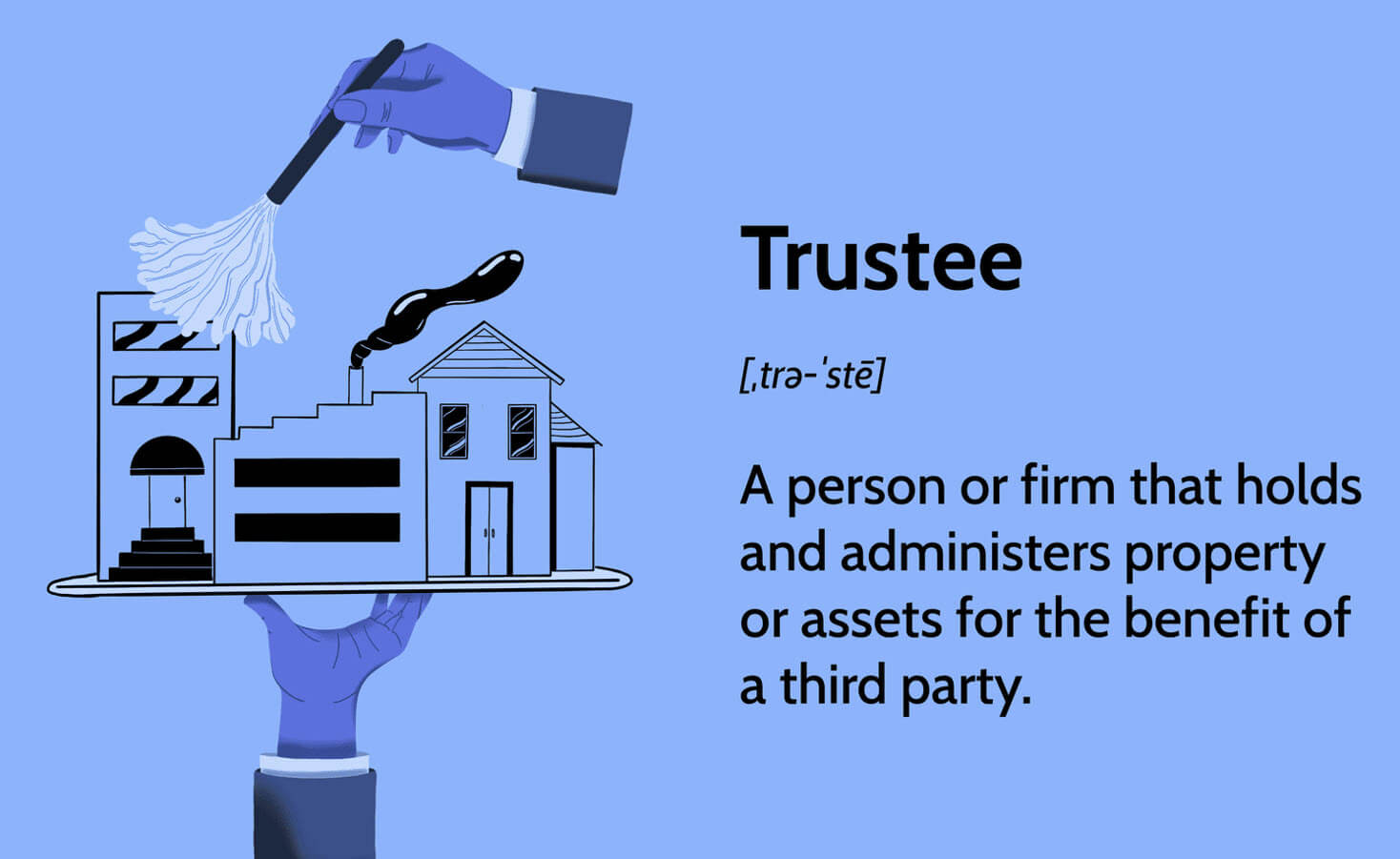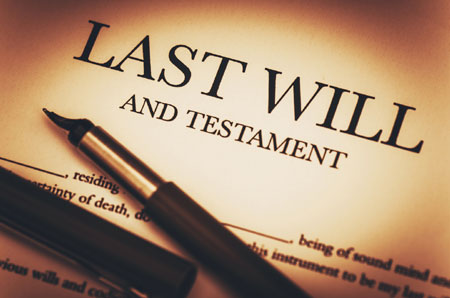The United States is in the midst of the largest generational wealth transfer in history. Over the next few decades, baby boomers are expected to pass down an estimated $84 trillion in money and property,1 around $18–19 trillion of it related to residential real estate.2
For millions of younger Americans, this means inheriting a parent’s or grandparent’s home. But while a house can be a generous gift that might seem like a windfall, the financial and practical realities of owning a home can quickly turn that gift into a burden for heirs who are not fully prepared.
A mortgage does not automatically disappear when a home changes hands. Ongoing costs—such as property taxes, insurance premiums, utility bills, and deferred maintenance—can also quickly pile up. And if the home lingers in probate or stays in a trust before transferring to beneficiaries, questions may arise about who is responsible for covering these expenses in the meantime.
If the house needs major repairs or is in a high-property-tax area, the costs can be staggering. On top of that, other “hidden” costs, such as cleaning out decades’ worth of accumulated stuff (which may or may not have financial or sentimental value) or replacing major outdated appliances, can surface.
This is not to say that inheriting a home is a bad thing—far from it. With home prices at record highs and many Americans priced out of the market, inheriting a house can be a life-changing opportunity. However, without proactive estate planning and frank conversations about the true costs of home ownership, it can also bring surprise expenses, family conflicts, and tough decisions.
The Costs of Home Ownership
There is the home we can afford on paper—and the one we can afford in reality. The gap between the two may be wider than we realize.
A mortgage alone can cost thousands of dollars per month. If there is still a balance on the home loan when the owner dies, the lender will expect payments to continue. An heir who wants to keep the property may be able to assume the existing mortgage, but this outcome is not guaranteed and depends on the lender and loan type. In some cases, the heir may instead be required to pay off the remaining balance or refinance the loan.
The expense of a mortgage is just the start. Hidden costs can quickly upend budgets and turn an inherited sanctuary into a money pit, especially for first-time homeowners unprepared for the realities of home ownership. Common ownership costs that heirs may overlook when they inherit a home are:
- Property taxes. Mortgages eventually end, but property taxes do not. In some states, the home may be reassessed at its current market value after the owner’s death, potentially triggering a steep tax increase.
- Utilities. Services such as water, gas, electricity, and trash pickup should remain active even after the owner passes away. Cutting them off completely can lead to problems such as frozen pipes or mold and may result in costly reconnection fees or permanent damage in extreme cases. Once the heir takes over ownership, they will be responsible for these utilities, along with other monthly expenses such as internet and cable.
- Maintenance and repairs. Routine upkeep such as lawn care or snow removal may be legally required under local ordinances. Major repairs (e.g., roof repairs, HVAC replacements) can cost tens of thousands of dollars, and they become almost inevitable as the home ages.
- Homeowner’s insurance. Homeowner’s insurance policies will need to be updated after the owner’s death to reflect the new ownership. Premiums may increase, and if the property will be unoccupied for an extended period, the insurer may require a vacant home policy.
A Bankrate study pegs these hidden ownership costs—maintenance, utilities, property taxes, home insurance, and internet and cable—at an average of around $21,000 per year in 2025, depending on location.3 These costs are in addition to the mortgage, which, the study authors caution, is just the beginning.
Before the beneficiary can even address these routine costs, there may also be cleanup expenses, moving costs, and potentially the cost of new appliances or emergency repairs from disasters or plumbing failures while the home was vacant. Pretty soon, what seemed like a gift can quickly become anything but.
Paying for Home Costs During (and After) Transition
A home is the single largest expense most people will ever undertake, whether they buy it themselves or inherit it from someone else.
Understanding the true cost of homeownership and whether a beneficiary is ready to handle it is an important first step. But before ever reaching that point, there is a transition period that occurs after the original owner dies and before the keys are handed over to the new owner.
Bills and expenses are not suspended during this period. They must be paid on time and in full while the property is in probate or held in trust, sometimes for months or years.
Who is responsible for paying such bills and expenses? It depends on how the estate is structured and how quickly ownership transfers.
- Probate. If the deceased person owned the home in their individual name, the property must likely go through probate before title can be transferred to the beneficiary. Probate is the court-supervised process in which a deceased person’s final affairs are settled and their accounts and property are distributed to the entitled recipients. Until the probate process is complete, ongoing expenses generally fall to the estate itself. The executor (known as a personal representative in some jurisdictions) uses estate funds (the deceased owner’s money) to cover the mortgage, taxes, insurance, and upkeep. If there is not enough cash, the executor may need to sell or liquidate other accounts and property.
- Trust. For a home held in a trust, the trustee manages associated expenses using trust funds. However, as with a home in probate, if the trust lacks liquidity, the trustee might need to liquidate other trust accounts or assets to continue making payments on time.
- No immediate transfer. When there is no clear plan—or when disputes arise among the deceased’s loved ones over who is entitled to the property—the home may sit idle, leading to mounting expenses, potential tax complications, and a decline in property value if upkeep and payments are not consistently maintained.
- Post-transfer (beneficiary ownership). Once home ownership legally transfers to the beneficiary, the financial responsibility shifts entirely from the estate or trust to the new owner.
Estate plans can include a cash reserve to cover transitional and post-transfer costs. Holding these funds in a trust—regardless of whether the home is also held in the trust—can spare loved ones financial strain and give them time to decide whether to keep, sell, or rent the property.
Leaving the home to a loved one through a trust rather than transferring it outright allows the original owner to specify plans for the home. The trust can state who gets the home (and when) and what they can (and cannot) do with it. For example, the trust may stipulate that the home can be used only as a personal residence and not as a rental property.
A trust structure for an inherited home can bring clarity, and a cash infusion to fund upkeep, which can prevent the home from falling into disrepair. However, a trust that is too restrictive or does not have enough money to cover expenses could cause problems down the road. A beneficiary may not have the authority to sell the property or the funds to maintain it while the home is owned by the trust.
Such dilemmas and the question of who is responsible for what costs and when could be addressed with proactive estate planning and the use of planning tools, such as the following:
- Property held in trust with a right of occupancy. This arrangement grants someone (often a spouse or partner) the right to live in the home for life or a specified period without transferring actual ownership of the home out of the trust. When the occupancy period ends, ownership of the property passes to other named beneficiaries. The terms of the right of occupancy will clearly define which expenses are the occupant’s responsibility and which will be paid by the trust, leaving no room for uncertainty. If the trust is covering any costs, it may set aside a lump sum to ensure those obligations are met.
- Transfer-on-death (TOD) deed. This type of deed (though not legally recognized in all states) allows a home to transfer automatically to a named beneficiary upon the owner’s death, avoiding probate court involvement. With no probate or trust administration required, responsibility for the home’s expenses and costs is always clearly defined.
- Joint ownership with rights of survivorship. While types of property ownership vary widely by state, creating a joint ownership with survivorship rights in a home generally means that, when one owner passes away, that owner’s share of the property automatically transfers to the surviving co-owner without the need for probate or trust administration. While this option provides clear guidance as to who the owner of the property is when someone passes away and, therefore, who is responsible for paying its associated costs, it carries significant risks. Adding someone as a joint owner of your home is legally considered a gift, which could trigger gift taxes and require filing a gift return, depending on the home’s value. The property may also be exposed to the new co-owner’s creditors, divorcing spouses, or legal judgments, meaning you could lose your home because of their debts. Also, the new co-owner would have to sign off on any future transactions, such as selling the property, obtaining a mortgage, or refinancing the home.
There is no single right way to pass down a home. The best approach depends on factors such as family dynamics, property value, and whether funds will be available to support the home during any in-between phase.
Hidden Estate Plan Considerations for Handing Down a Home
Passing down a home can create more than just financial burdens for beneficiaries; the emotional and practical challenges can be just as significant. Disagreements may surface if multiple beneficiaries want the property or cannot agree on how it should be used, and tensions may arise when one person struggles to budget for ongoing costs such as taxes, insurance, and maintenance. Such challenges can strain relationships and delay important decisions. Planning ahead and setting clear expectations now can help prevent future conflicts and ensure a smoother transition for everyone involved.
If you are considering passing down a home, keep these points in mind:
- Be clear about who will receive the home. Specify in your estate plan exactly who will inherit the property to avoid confusion, disputes, or competing claims among loved ones.
- Define rights and responsibilities for multiple owners. If the property will be shared—such as a family cottage given to several children—outline in writing how it will be used, who is responsible for maintenance, how expenses will be split, and what happens if one owner wants to sell their share.
- Prepare a young beneficiary for the costs of homeownership. If you plan to leave the home to someone who has never owned property before, walk them through the housing budget while you are alive, or leave a detailed list of ongoing expenses so they understand the financial commitment before accepting ownership.
- Declutter and prepare the home. Clearing out the house now spares beneficiaries and loved ones the emotional and logistical burden of sorting through decades’ worth of belongings later. Movements such as minimalism and “Swedish death cleaning” 4encourage paring down possessions, which can also make the home more market-ready if a future sale is likely.
Leave a Home, not a Headache
Despite all the complex legal mechanisms available to transfer home ownership, perhaps the simplest—and often overlooked—part of the process is having a straightforward discussion with your loved ones to prepare them for home ownership before you pass. Talking about the fate of a family home inevitably involves some uncomfortable discussions, but they can help nip later financial discomfort and family discord in the bud.
However, talk alone—no matter how honest—is not enough if it is not backed by a solid plan that is ready to implement.
Your home may be the most valuable part of your legacy and estate plan. To help your loved ones get as much value from it as you have, talk to our estate planning attorneys.
- James Royal, Ph.D., An $84 trillion wealth shift is underway, and you may soon inherit a piece of it. Here’s what to expect, Bankrate (June 25, 2025), https://www.bankrate.com/investing/the-great-wealth-transfer. ↩︎
- Anthony Smith, Boomers Are Sitting on Nearly $19 Trillion in Real Estate—Here’s Where They Hold the Most Housing Wealth, Realtor.com (July 21, 2025), https://www.realtor.com/news/trends/baby-boomers-home-equity-wealth. ↩︎
- Linda Bell, Study: Owning a home costs over $21,000 a year in hidden expenses, Bankrate (June 9, 2025), https://www.bankrate.com/home-equity/hidden-costs-of-homeownership-study. ↩︎
- John P. Weiss, This Is What Swedish Death Cleaning Taught Me About Life, becomingminimalist, https://www.becomingminimalist.com/death-cleaning (last visited Aug. 22, 2025). ↩︎












